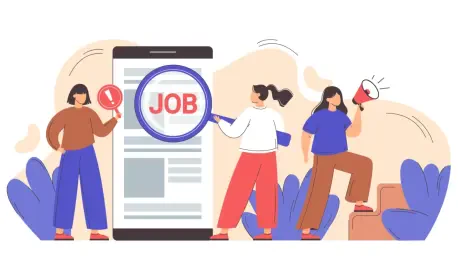I’m thrilled to sit down with Sofia Khaira, a renowned specialist in diversity, equity, and inclusion, who has dedicated her career to transforming talent management and development practices. With her deep expertise in fostering inclusive workplaces, Sofia offers unique insights into the evolving priorities of today’s workforce, particularly among Gen Z job seekers. In this conversation, we explore how younger generations are reshaping the job market with their focus on personal growth, the impact of technology on skill development, and the challenges and opportunities for HR in meeting these new expectations.
How do you think Gen Z’s emphasis on a ‘growth mindset’ in their job search reflects their broader values and aspirations?
I believe Gen Z’s focus on growth mindset roles stems from their desire for continuous self-improvement and adaptability in a fast-changing world. Unlike previous generations, they’ve grown up in an era of rapid technological advancement and economic uncertainty, so they value roles that offer skill-building opportunities like mentoring or study leave. It’s not just about a paycheck for them; it’s about building a future-proof career and finding purpose in their work.
In what ways do you see Gen Z’s approach to personal development in the workplace differing from that of Millennials or older generations?
Gen Z tends to be more proactive and intentional about seeking development opportunities compared to Millennials or older generations like Gen X and Baby Boomers. While Millennials often focused on work-life balance and job security, Gen Z is laser-focused on learning as a core job benefit. They’re 68% more likely to prioritize roles with personal growth opportunities, which shows they view their career as a journey of constant evolution rather than a static path.
What do you think is fueling the dramatic 240% increase in job searches for roles with learning and development benefits this year?
This surge reflects a broader cultural shift toward lifelong learning, especially among younger job seekers. The uncertainty brought by economic changes and technological advancements, like AI, has made people realize they need to keep upskilling to stay relevant. Additionally, social media and online platforms have made it easier for job seekers to discover and prioritize roles that offer these benefits, amplifying the demand since the start of the year.
How are companies adapting their strategies to meet Gen Z’s expectations for growth-focused roles, especially with 64% of job postings now highlighting learning benefits?
Companies are recognizing that traditional perks like extra vacation time aren’t enough to attract Gen Z talent. They’re increasingly offering initiatives like personal development days, coaching programs, and study sabbaticals. Many are also embedding learning into their culture by providing access to online courses or in-house training. It’s a smart move because these benefits often don’t require huge financial investment, but they do show a commitment to employee growth, which resonates deeply with younger workers.
What types of development initiatives do you believe are most effective in attracting and retaining younger talent?
I think programs that offer hands-on, personalized growth opportunities stand out the most. Mentoring programs, for instance, provide direct guidance and build meaningful connections within the company. Study leave or sabbaticals for skill-building also show that employers value long-term development. These initiatives work best when they’re tailored to individual needs and aligned with career goals, making employees feel truly supported.
How is the rise of AI shaping the demand for upskilling, particularly among younger job seekers?
AI is a game-changer, and it’s pushing younger job seekers to prioritize upskilling because they see how quickly it’s transforming industries. With 78% of people—and even higher percentages among 25-to-34-year-olds—expressing interest in learning new skills due to AI, it’s clear there’s a fear of being left behind. Gen Z, in particular, wants to master digital and AI-related tools to stay competitive, and they’re looking for employers who can help them do that through training and real-world application.
What are some of the key challenges HR teams face when designing meaningful development programs for a diverse workforce?
One of the biggest challenges is ensuring these programs are inclusive and relevant to employees at different career stages and with varying needs. It’s not just about offering a one-size-fits-all training; HR teams need to invest time in understanding what skills employees want to build and how they learn best. Additionally, there’s the challenge of balancing cost and impact—while many growth benefits aren’t expensive, they require creativity and consistent effort to manage effectively and keep employees engaged.
Looking ahead, what is your forecast for the trend of growth mindset roles in the job market over the next few years?
I believe this trend is here to stay and will only grow stronger. As technology continues to evolve and the workplace becomes more dynamic, the demand for roles that prioritize learning and development will increase across all generations, not just Gen Z. Companies that fail to adapt risk losing top talent, so I expect we’ll see even more innovative programs and a deeper integration of growth opportunities into job roles. It’s an exciting time, and I think it will redefine how we view career progression in the long term.









